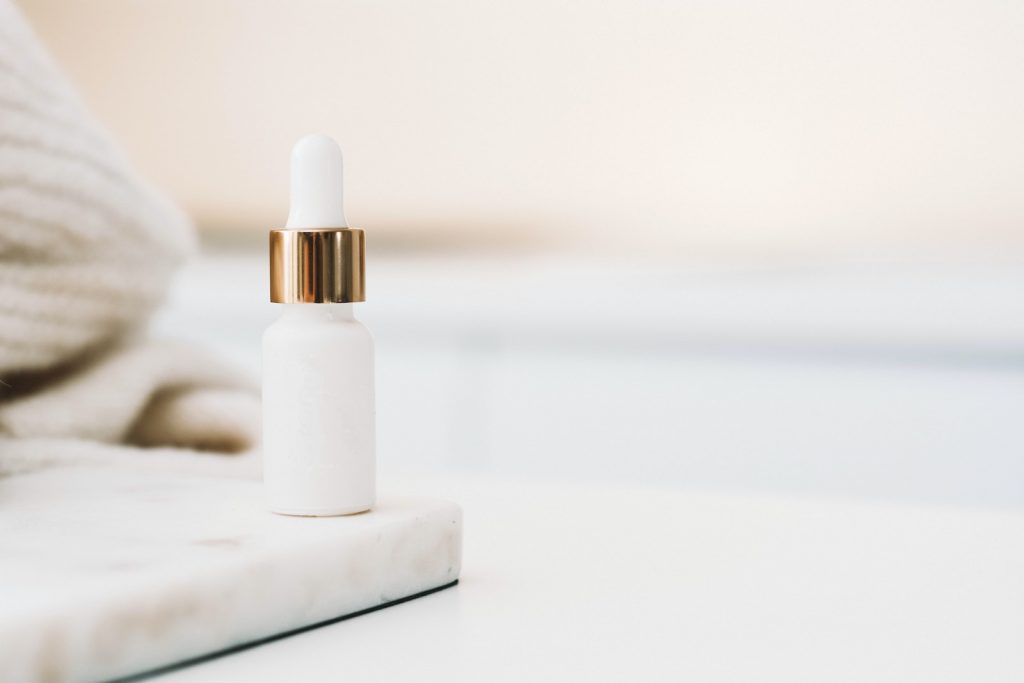Night Journal Prompts: End Your Day with Positive Thoughts
Introduction
Earlier this year, I was going through a really hard postpartum period, I was diagnosed with postpartum depression and was suffering from insomnia as a result. My nights felt endless, and my days were a fog of exhaustion and overwhelm. I sought professional help for this and eventually started to feel better. However, bedtime still brought anxiety, and I would panic about not being able to fall asleep. To combat this, I began to work on my sleep hygiene—avoiding blue light, drinking herbal teas, using pillow spray, etc. And another small addition to my routine was night journaling and practising gratitude. Quickly, I realised that focusing on positive things in my life before bed helped me calm down and had a significant impact on my mental health. So in this post, I want to share my night journal prompts – in the hopes that they may help you as well.

The Benefits of Night Journaling
When I first started journalling, I had no idea how much it would help me, but the benefits quickly became clear. Here are some of the amazing perks:
Mental Health Boost: Journaling at night helps reduce anxiety and stress. It’s like a brain dump where you can unload all your worries onto the page, leaving your mind clearer and calmer.
Better Sleep: Clearing your mind before bed can lead to a more restful sleep. By reflecting on your day and focusing on the positives, you’re less likely to lie awake worrying about tomorrow.
Self-Reflection: Taking a few minutes to reflect on your day helps you understand yourself better. It’s a moment to think about what went well and what didn’t, fostering personal growth.
Positive Mindset: Ending the day on a high note with positive thoughts can shift your overall mindset. It’s a chance to focus on the good things, no matter how small, and carry that positivity into the next day.
POSTS YOU MAY BE INTERESTED IN:
The Mental Health Benefits Of Hiking And Being In Nature This Spring
Daily Habits To Improve Your Life: 10 Habits To Try Today
My Fitness Journey Postpartum: Finding Joy In Fitness Again
Note on Mental Health
Anxiety, depression, and postpartum depression (PPD) are serious conditions that require professional help. If you’re struggling, please reach out to a healthcare provider. I spoke to my doctor and received support through the PANDAS Foundation, which was incredibly helpful.
Remember, night journaling and small well-being practices can be wonderful additional tools for your mental health, but they are not substitutes for professional treatment. Take care of yourself and seek the help you need.
How to Get Started with Night Journaling
Getting started with night journaling is really easy. You don’t need anything fancy, just a few simple steps to make it a part of your nightly routine. Here’s how you can start:
Set the Scene
Comfortable Spot: Choose a cosy place, maybe your favourite chair or your bed.
Soft Lighting: Use soft, warm lighting to create a soothing atmosphere.
Relaxing Music or Silence: Some people find background music helpful, while others prefer silence. Do what feels right for you.
Materials Needed
Journal or Notebook: Pick something that feels good to write in. It could be a simple notebook or a beautiful journal. I’m currently using this dotted journal, which is perfect for me as I like to doodle as well and make pages look pretty 🙂

Pen or Pencil: Choose a pen or pencil that you enjoy writing with.
Optional: Stickers, coloured pens, and other decorative items can make the experience more enjoyable if you like getting creative. I really like these motivational quote stickers to fill pages out with in-between journal entries. I try and use ones that are relevant to my day.
Establish a Routine
Choose a Consistent Time: Find a time that works for you, whether it’s right before bed or after your evening routine.
Make It Non-Negotiable: Treat this time as an essential part of your self-care routine, just like brushing your teeth.
When I started journaling earlier this year, I found that having a set routine made it easier to stick with it. I’d grab my journal, snuggle up under my weighted blanket, grab my herbal tea and spend just a few minutes reflecting on my day.
POSTS YOU MAY BE INTERESTED IN:
Food Positivity: How To Encourage Healthy Eating Habits
15 Good Habits For A Healthier Life
Body-Neutral Affirmations: From Appearance To Function
Night Journal Prompts for Positive Thoughts
Now that you’re ready to start night journaling, let’s talk about what to write. Sometimes, staring at a blank page can be intimidating, so having a few prompts can help get your thoughts flowing. Here are some of my favourite night journal prompts that focus on ending your day with positive thoughts:

Gratitude Prompts
Reflecting on what you’re grateful for can shift your focus to the positive aspects of your day.
- “What are three things you are grateful for today?”
- “Write about a moment today that made you smile.”
Reflection Prompts
These prompts help you think about your day and acknowledge both the good and the challenging moments.
- “What was the best part of your day?”
- “What did you accomplish today that you’re proud of?”
Self-Compassion Prompts
Practicing self-compassion is essential for mental well-being. These prompts encourage you to be kind to yourself.
- “Write a kind message to yourself.”
- “What challenges did you face today, and how did you handle them?”
Goal-Setting Prompts
Setting small goals for the next day can help you stay focused and motivated.
- “What is one thing you hope to achieve tomorrow?”
- “How can you make tomorrow even better than today?”
When I first started journaling, I found that these night journal prompts were incredibly helpful. They gave me a structure to follow and made the whole process feel more manageable. Each night, I’d pick a couple of prompts and jot down my thoughts.
Tips for Effective Night Journaling
Starting a night journaling practice can be a wonderful addition to your routine, but like any new habit, it might take a little time to get into it. Here are some tips to help you make the most out of your journaling sessions:
Be Honest
Your journal is a safe space for your thoughts and feelings. Write openly and honestly without self-judgment.
No Filters: Don’t worry about spelling, grammar, or whether your thoughts make perfect sense.
Be True to Yourself: Write what you truly feel and think, not what you think you should write.
Stay Consistent
The more regularly you journal, the more benefits you’ll see. Aim to make it a nightly habit.
Daily Habit: Even if it’s just for a few minutes, try to journal every night.
Set Reminders: Use alarms or reminders to help you remember to journal, especially when you’re first starting out. But don’t worry if you miss a day here or there.
Keep It Simple
Don’t overcomplicate the process. Sometimes, less is more.
Short and Sweet: A few lines can be just as powerful as a whole page.
Focus on Positivity: Especially if you’re using this practice to boost your mood before bed, try to focus on positive reflections.

Personalise Your Prompts
Feel free to adjust or change the prompts to better suit your needs.
Make Them Yours: Tailor the prompts to reflect your personal goals, challenges, and interests.
Mix It Up: Don’t be afraid to switch up your prompts to be more specific to your life situation.
As a bit of a perfectionist, I did initially spend too much time thinking about what to write and how I sounded, sometimes even feeling a bit awkward about it. However, I found that keeping it simple and staying consistent was key to making it a habit. Some nights, I’d write just a few lines, while other nights, I’d fill pages. It’s all about what feels right for you at the moment.
Overcoming Common Challenges
Even with the best intentions, there might be a few bumps along the road when you start journaling. Here are some common challenges and how to overcome them:
Time Management
Finding time to journal, especially on busy nights, can be tough. But remember, even a few minutes can make a difference.
Keep It Brief: Aim for just 5-10 minutes of journaling. And if you’re really short on time, pick one prompt and spend just 2 minutes on it. It doesn’t have to be a lengthy process.
Integrate It Into Your Routine: Pair journaling with another nightly habit, like brushing your teeth or before reading a book.
Writer’s Block
Staring at a blank page can be daunting. If you’re not sure what to write, prompts can help, but there are other strategies too.
Start Small: Begin with a single sentence about your day or something you’re grateful for.
Use Lists: Write lists instead of paragraphs, like a list of things that went well today or a list of goals for tomorrow.
POSTS YOU MAY BE INTERESTED IN:
Types Of Goals: Outcome, Performance, And Process Goals
75 Medium Challenge: 5 Daily Habits + FREE Printable Tracker!
5 Types Of Mentality: A New Approach To Healthy Habit Changes
Consistency
It can be challenging to stick with a new habit, especially when life gets busy.
Create a Reminder: Set a daily reminder on your phone to journal.
Be Flexible: If you miss a night, don’t stress. Just pick it back up the next night.
When I first started journaling earlier this year, I faced all these challenges. There were nights when I was too tired or just didn’t feel like writing. But I found that being flexible and kind to myself made a big difference. If I missed a night, I didn’t let it derail my progress. I simply started again the next day.

Night Journal Prompts: Conclusion
To wrap things up, night journaling can be an amazing tool for ending your day on a positive note. It’s a simple practice that offers numerous benefits, from reducing stress and anxiety to improving sleep and fostering personal growth.
Night journaling has become my little sanctuary. It was a small, manageable habit that helped me navigate a challenging time, and I believe it can do the same for you – I truly hope these night journal prompts help you!
If you’re new to journaling, remember to start small and keep it simple. Use the prompts provided, find a cosy spot, and make it a part of your nightly routine. Don’t worry about perfection – just write honestly and consistently, and let the practice evolve naturally.
Give night journaling a try tonight! Grab a notebook, pick a prompt, and spend a few minutes reflecting on your day. I’d love to hear about your experiences and any prompts that resonate with you. Share your thoughts in the comments below, and let’s support each other on this journey to ending our days with positivity and peace.





